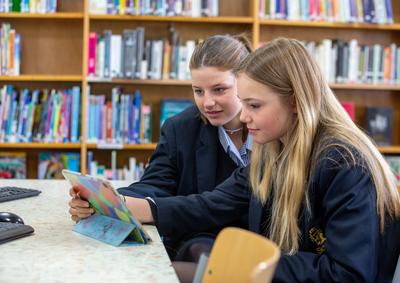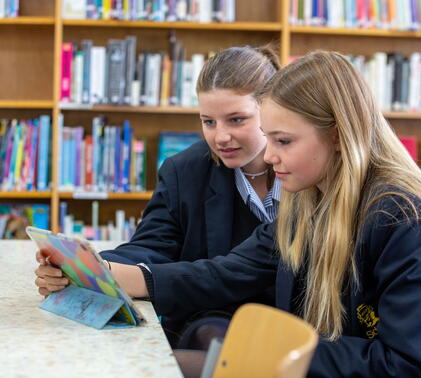
Choosing GCSE options is an exciting milestone. It marks the next educational chapter as children start to really consider their future. Choosing GCSE options is an opportunity to reflect on current progress,achievements, and passions, and the perfect time to start considering future goals and ambitions. Making GCSE subject choices needn’t be daunting or overwhelming, but should be seen as a positive experience and one in which children can really build on their personal development, selecting options that reflect who they are and what they love to do.
It’s a good idea to approach the question of how to choose GCSE subjects with both the head and the heart. Our guide will run through some common questions around choosing GCSE options and offer advice on what to think about before making a final decision.
What Are GCSEs?
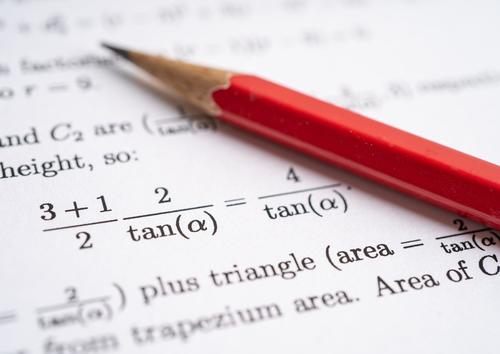
Firstly, let's briefly mention what GCSEs are. GCSE stands for General Certificate Of Secondary Education. GCSEs are the formal, standardised qualifications that 15 and 16 year olds in the UK take, and receive an overall mark for. GCSEs are graded 1-9 and the eventual grade can contribute to which path a child decides to take in their further studies and beyond Secondary School.
How Many Subjects Do You Choose For GCSE?
Including the core subjects, children in the UK will usually choose between 8 and 12 subjects for GCSE. This can vary according to the school and the individual child. The Sidcot Learning Wheel outlines the Sidcot approach to learning and demonstrates how we steer students towards challenges and academic achievement, while also focusing on who they are as people.
This might mean that some children take 10 GCSEs and then perhaps a BTEC in one or more subjects. Other children might take 12 GCSEs, including the triple award in Science. Identifying what works for each child can help to determine how many subjects to choose for GCSE.
When Do You Choose GCSE Options?
GCSE subject choices are typically made in Year 9 when children are aged 13 and 14. When children return to school after the summer break and move into Year 10, they will start to work towards their GCSEs in their chosen subjects. This means that some subjects will be left behind and more time is spent on the GCSE subject choices in preparation for the GCSE coursework and exams.
Alongside GCSEs, students take PE in the curriculum and PASS, and have the opportunity for plenty of extracurricular activities, including short courses such as REP (Religious Studies, Ethics & Philosophy), which counts for 0.5 of a GCSE.
What GCSE Options Are There?
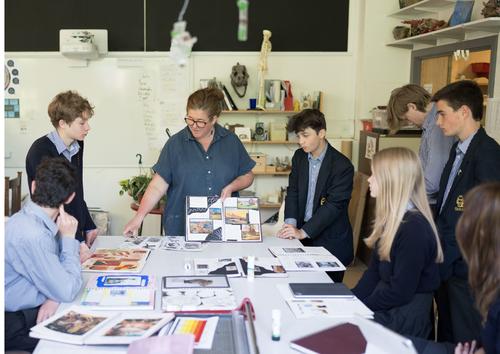
When choosing GCSE options, there are some core subjects that all students must take. These core subjects are:
Although science is a core subject, there are two choices when choosing GCSE options. Children can opt to take combined science, which is equivalent to two GCSEs, or take three separate GCSEs in Physics, Biology and Chemistry.
Once the core subjects have been covered, there are several other GCSE subject choices to think about. These extend across humanities, languages and technology. In most schools, these include subjects such as History, Geography, Art and Drama. At Sidcot School, we’re able to offer some more unique GCSE subjects, including Food Preparation and Textiles. Below are the GCSE subject choices we offer:
| Art Business Studies Computer Science Design Technology | Geography History Modern Languages Physical Education | Food Preparation Textiles (Art & Design) Drama Music |
For some children, choosing GCSE options might come easy, or for others they may find they surprise themselves. Having to make a decision about what to study and focus on for the next few years can motivate children to really take stock of what they do and don’t enjoy, which is a great starting point when beginning the process of choosing GCSE options.
How To Choose GCSE Subjects
Passions And Interests
Arguably, what matters most when choosing GCSE options should be a child’s passions and interests. After all, if these subjects are the ones that will then go on to inform decisions later in life, choosing something there is a genuine interest in is more likely to lead to success. Nurturing a child’s spirit is just as important as bolstering their academic career at Sidcot. Children thrive when they love learning, so by following their passions at Sidcot, our students achieve their best academically.
Long Term Goals
If your child has expressed a desire towards a certain profession, encourage them to take complementary subjects - for example, aspiring doctors will benefit from a GCSE in Biology. It’s still very early to be thinking about future careers, so it’s important to study a breadth of subjects at this age to discover where passions and interests lie.
Research
Preparation is key with GCSE subject choices. Read up on exactly what each course involves. For example, is it more coursework-based or is 100% of the qualification achieved by passing an exam? Some students enjoy the exam experience and cope well under that type of pressure. Others thrive off the long-term gain of studying for and completing coursework, seeing their efforts come to fruition in one project. Choosing subjects that complement each study style will be important in supporting mental health during what can be a stressful time period for many.
Learn more about GCSEs at Sidcot.
Strengths And Weaknesses
We all have strengths and weaknesses, and it’s valuable to recognise this when choosing GCSE options. Where possible, it will be beneficial to choose subjects children are naturally stronger in, as they’ll be able to handle the step up in difficulty more easily. However, children shouldn’t be dissuaded from following any passions even if these are subjects they are not so strong in - it will just mean putting in a little extra work to succeed.
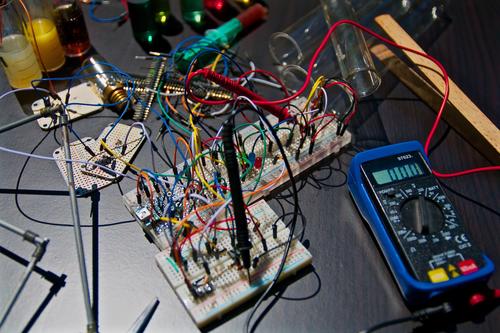
Communication
Speak to teachers, pastoral staff and careers advisors to get a really well-rounded view of each GCSE subject and whether they could be an option. Staff at Sidcot School get to know every child and can advise on what they think would be a great fit when choosing GCSE subjects.
Have An Open Mind
It might seem like choosing GCSE subjects is a permanent decision that cannot be undone. However, there are understandably times when children change their mind about their GCSE subject choices - that’s more than OK. Be flexible and know that there are options if something doesn’t work out. In the same vein, don’t feel pressure to stick to subjects that were once a favourite, if new and emerging interests have come to the fore. Children can discover new passions or have new career ideas at any time, which just shows they are developing as individuals.
Extracurricular Activities
Some GCSE subject choices can be satisfied in other ways, for example, through extra curricular activities. If a child is struggling to narrow down their preferences, it might be worth looking at the extra curricular programme on offer. If there’s provision there for children to enjoy their favourite pastimes, that may help them narrow down their choices. For example, sport-loving students don’t necessarily need to take a GCSE in PE if it doesn’t synchronise with their future goals. They can access a packed programme of activities at Sidcot School instead, thereby finding a balance between their academic desires and their leisure pursuits.
GCSEs At Sidcot School
Choosing GCSE subjects is an important time, but it is just one element of school life and one step towards the future. It does not need to define a child or be a time of pressure or worry. Children at Sidcot have many strengths and weaknesses, and we take pride in each and everyone of them. Our GCSE results demonstrate the hard work and dedication our students put into their GCSE subject choices, but are only one side of the coin.
Having well-rounded, happy and confident children who leave school feeling excited and ready for what lies ahead is what really matters and what sets Sidcot School apart. We work with our students to guide them through their GCSE subject choices, always making sure they are staying true to themselves and living life to the full, as well as working towards a prosperous future.
Find out more about the approach to choosing GCSE subjects at Sidcot School, and about the aims and values that underpin everything we do, by requesting a prospectus or contacting us. You can also see education and the school day in action by visiting an open morning or booking a tour.


